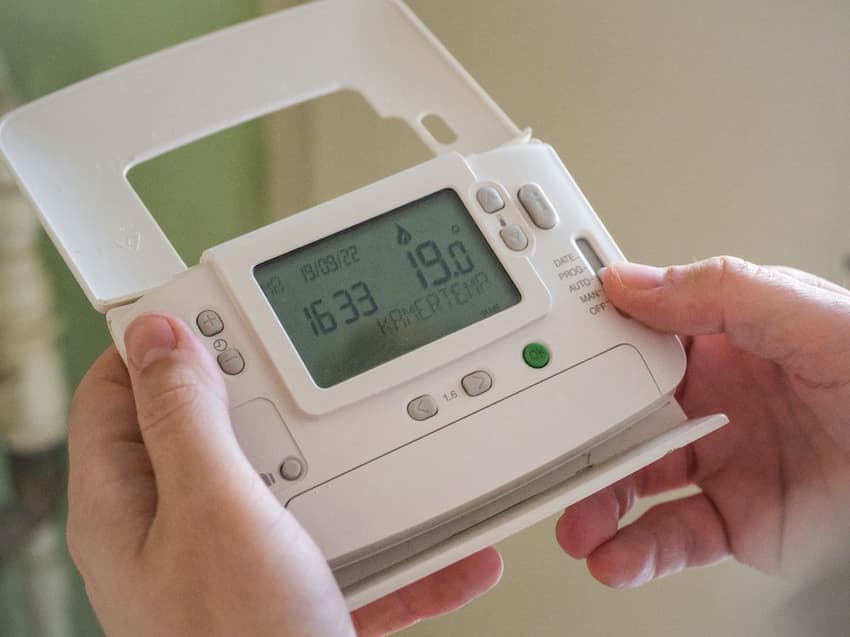EXPLAINED: How Austria's new rules for electricity prices will affect residents

Austria is set to undergo significant changes in its approach to electricity prices, with the government announcing a reduction in subsidies and extending key market measures.
Finance Minister Magnus Brunner and Energy Minister Leonore Gewessler outlined energy reforms on Wednesday, emphasising the need for increased competition in the market and a more sustainable approach to subsidies.
Here's a breakdown of how these new rules will impact residents nationwide.
Subsidy reduction
Effective from July 1st, the subsidy for the first 2,900 kilowatt hours (kWh) of electricity per household per year will be reduced from a maximum of 30 to 15 cents per kWh. The upper limit of the energy price, up to which the brake applies, will also decrease from 40 to 25 cents.
Despite these changes, the initial 2,900 kWh will still be subsidised until the end of the year.
READ ALSO: How Austria has drastically reduced imports of Russian gas
Under the new regulation, households will pay only ten cents per kWh for the first 2,900 kWh, accounting for approximately 80 percent of average electricity consumption. Furthermore, households with more than three people will receive a subsidy of €52.50 per person per year, and low-income households will benefit from a 75 percent reduction in grid costs.
Gewessler emphasised that these measures aim to incentivise electricity providers to lower prices and foster competition in retail tariffs.
Extension of market measures
The windfall profits levy on energy companies will be extended until the end of 2024, with adjustments to expedite the growth of green electricity production.
Companies investing in renewable energies this year or in the next three years can now deduct 75 percent of the costs, doubling the deductible amount. Fossil fuel companies will face a 40 percent tax on profits exceeding five percent of their average for the years 2018 to 2021.
The government's decisions have received mixed reactions from various political and industry stakeholders. While the FPÖ criticises the electricity price brake and profit levy, calling for a reduction in excise duties on energy, NEOS deems the electricity price brake as "nonsense" even at half the level.
READ ALSO: How to keep energy bills down in Austria
The SPÖ favours an energy price cap similar to Germany, and the ÖGB and Chamber of Labor express concerns about the timing of the reduction in the electricity cost cap.
Comments
See Also
Finance Minister Magnus Brunner and Energy Minister Leonore Gewessler outlined energy reforms on Wednesday, emphasising the need for increased competition in the market and a more sustainable approach to subsidies.
Here's a breakdown of how these new rules will impact residents nationwide.
Subsidy reduction
Effective from July 1st, the subsidy for the first 2,900 kilowatt hours (kWh) of electricity per household per year will be reduced from a maximum of 30 to 15 cents per kWh. The upper limit of the energy price, up to which the brake applies, will also decrease from 40 to 25 cents.
Despite these changes, the initial 2,900 kWh will still be subsidised until the end of the year.
READ ALSO: How Austria has drastically reduced imports of Russian gas
Under the new regulation, households will pay only ten cents per kWh for the first 2,900 kWh, accounting for approximately 80 percent of average electricity consumption. Furthermore, households with more than three people will receive a subsidy of €52.50 per person per year, and low-income households will benefit from a 75 percent reduction in grid costs.
Gewessler emphasised that these measures aim to incentivise electricity providers to lower prices and foster competition in retail tariffs.
Extension of market measures
The windfall profits levy on energy companies will be extended until the end of 2024, with adjustments to expedite the growth of green electricity production.
Companies investing in renewable energies this year or in the next three years can now deduct 75 percent of the costs, doubling the deductible amount. Fossil fuel companies will face a 40 percent tax on profits exceeding five percent of their average for the years 2018 to 2021.
The government's decisions have received mixed reactions from various political and industry stakeholders. While the FPÖ criticises the electricity price brake and profit levy, calling for a reduction in excise duties on energy, NEOS deems the electricity price brake as "nonsense" even at half the level.
READ ALSO: How to keep energy bills down in Austria
The SPÖ favours an energy price cap similar to Germany, and the ÖGB and Chamber of Labor express concerns about the timing of the reduction in the electricity cost cap.
Join the conversation in our comments section below. Share your own views and experience and if you have a question or suggestion for our journalists then email us at [email protected].
Please keep comments civil, constructive and on topic – and make sure to read our terms of use before getting involved.
Please log in here to leave a comment.